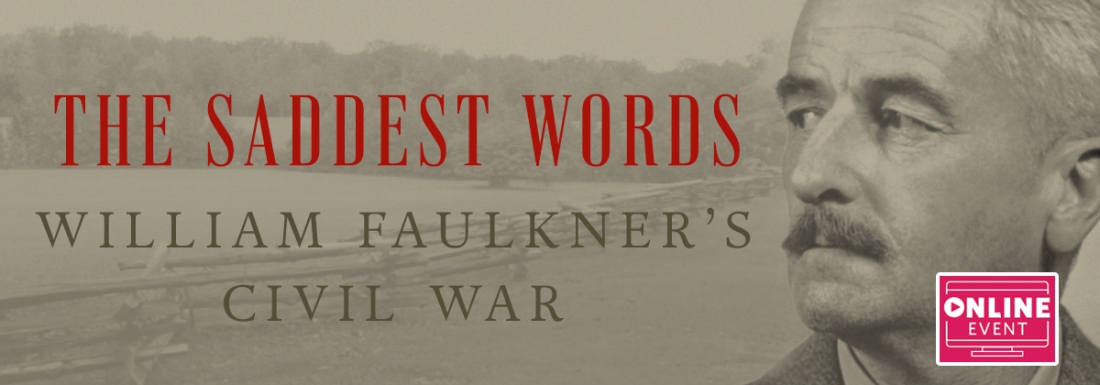William Faulkner once famously noted, “The past is not dead. In fact, it’s not even past.” If not explicitly, he was referring most pointedly to an American struggle with race and class dating to the Civil War. The Mississippi native struggled himself.
Michael Gorra, one of the nation’s foremost authorities on Faulkner, takes a 21st-century look at the Nobel and Pulitzer prize winner and his writing – in particular, his depiction of African Americans and racism – in a discussion of his new book The Saddest Words. Faulkner was a complex figure, a product of his southern upbringing who saw a need to end segregation but only in due time. At the same time, Gorra writes that “no white writer in our literature thought longer and harder about that problem (of race), the one that the Civil War’s aftermath had set in place.”
He reexamines Faulkner’s writing through the prism of our current national reckoning over inequality and injustice.
Gorra is a professor English language and literature at Smith College in Northampton, Massachusetts. He was a Pulitzer finalist for his 2012 book Portrait of Novel Henry James and the Making of An American Masterpiece and has won a National Book Critics Circle award for his work as a reviewer.
He speaks a week before the 123rd anniversary of Faulkner’s birth on September 25.
